Ex-prisoner Faruq takes up the revolutionary history of Black August Memorial and relates it to his life and the historic Pelican Bay Hunger Strike.


Ex-prisoner Faruq takes up the revolutionary history of Black August Memorial and relates it to his life and the historic Pelican Bay Hunger Strike.

The last of a series of essays on What is Socialism? This time, taking on the relation of anticapitalistic social transformation and climate chaos, in order to grasp what is essential to capitalism and its destructive environmental effects, and what kind of new society can transcend that.

In an era where women’s right to an abortion is endangered, feminist activist and writer Terry Moon delves into the question of what is socialism when it comes to women’s liberation, looking historically, politically, and philosophically.
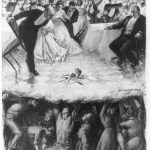
Marxist-Humanist Bob McGuire looks through history to Marx’s relationship to labor and the Black movement for freedom and then to our day and the relationship of Marxist-Humanism to labor and the Black struggle for freedom in speaking to the question many are asking today: What is socialism?

What is socialism? From Left to Right, this question is becoming central to political discussion. For me, it raises another question, too: What is philosophy? This is where I will begin, with the young Karl Marx.
Review by January of “Confessions of a Rogue Nuclear Regulator” by Greg Jaczko.

The Syrian Revolution has been the physical and intellectual battlefield that defines our time. As early as 2012 it was clear that what happened in Syria would determine the next stage of world history.

New book published for the 200th anniversary of Marx’s birth–Marx’s Philosophy of Revolution in Permanence for Our Day: Selected writings by Raya Dunayevskaya
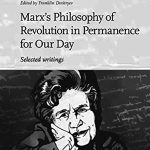
On the occasion of the publication of the new book “Marx’s Philosophy of Revolution in Permanence for Our Day: Selected Writings by Raya Dunayevskaya,” this essay explores Marx’s ideas on the basis of Dunayevskaya’s writings on them as a philosophy of revolution needed for our age.
Adele reviews “How All Politics Became Reproductive Politics: From Welfare Reform to Foreclosures to Trump,” by Laura Briggs, which discusses “reproductive labor,” “the work necessary to the reproduction of human life.”
Climate change, capitalism, and Trump
Presentation to the Chicago Local of News and Letters Committees
By Franklin Dmitryev, August 27, 2018
“…the spirit of the time, growing slowly and quietly ripe for the new form it is to assume, disintegrates one fragment after another of the structure of its previous world. That it is tottering to [=>]
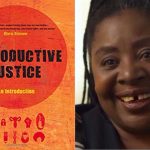
Review of the book “Reproductive Justice: An Introduction” by Loretta Ross and Rickie Solinger.

Prisoner-columnist Faruq reviews the book “Specters of Revolt: On the Intellect of Insurrection and Philosophy from Below” by Richard Gilman-Opalsky.

Lenin’s philosophic break and his Great Divide in Marxism illuminate the need for a new divide in the Left today, as does a new Marxist-Humanist view of Marx’s philosophy of revolution in permanence.

We look at the world economic situation that must be changed: the role of state-capitalism, labor, climate change, the law of value, exploitation, alienation, and revolution and counter-revolution in Syria.

Richard-Gilman Opalsky is a rare intellectual who recognizes revolt as a form of theory. Does his book “Specters of Revolt” grasp theory in a one-sided way and restrict the movement of negation of the negation? .
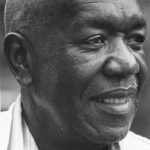
Excerpts from the introduction to the new French edition of Charles Denby’s book “Indignant Heart: A Black Worker’s Journal.”

The recent uprisings in Iran start where the 2009 revolt left off. This analysis focuses on the rebellious working-class youth as well as the interconnections to the Arab Spring, Vladimir Putin’s interference, Donald Trump’s racist agenda, and the philosophic-historic significance of the Bosnian and Syrian struggles against genocide.

New collection of writings by Raya Dunayevskaya on the 100th Anniversary of the Russian Revolution titled: Russia: From Proletarian Revolution to State-Capitalist Counter-Revolution. .

Readers’ Views: Marx’s concept of theory; we are not a game; voices from behind bars.

On the 100th anniversary of the Russian Revolution, a new book collects writings by Raya Dunayevskaya on the Revolution, counter-revolution, and their consequences, aiming to help create new revolutionary beginnings today. .
As Venezuela’s social crisis deepens, the contradictions always present in Chavismo are coming to a head. A look at the Bolivarian Constitution, Chavismo’s relationship to the Arab Spring, and its dependence on high oil prices and a top leader illuminate the crisis.

The new online Guide with links to all the documents is an extremely useful finding tool that helps the reader or researcher locate items and grasp the structure of the Archives. The website of the Raya Dunayevskaya Memorial Fund presents the Raya Dunayevskaya Collection as she organized it, together with the Supplement.

Review of the book “October: The Story of the Russian Revolution” by China Miéville.
From a prisoner’s perspective, Faruq reviews “I Am Not Your Negro,” a documentary film and companion book produced by Raoul Peck that concentrates on the writings and life of James Baldwin.

Trump’s barbarism in power is a crisis for bourgeois democracy and revolutionary thought. Opposition from below is far deeper than bourgeois opposition to Trump. To have efficacy today, Marx’s body of ideas must be grasped and projected as a whole. The movement from theory needs to meet the challenge of history, of freedom struggles and revolution.

Frédéric Monferrand introduces the new French edition of Marxism and Freedom. This excerpt concentrates on how the work reconstructs the Hegelian philosophical consistency of Marx’s Marxism so that it comes to life–from the 1844 Manuscripts to “Capital,” through the idea that history is the history of the efforts of humanity to make itself free.
The National Indigenous Congress in Mexico announced that 430 communities had created an Indigenous Governing Council to prepare for selecting a woman to contest the presidential election in 2018, not with the goal of taking power through the ballot box, but to elicit the voices and actions from below.
Now available at the News and Letters Committees website as a pdf file:
Marxism and Freedom, from 1776 until Today: Chinese translation
Raya Dunayevskaya’s classic explication of Marxism in Chinese. The first book on Marxist-Humanism, it was originally published in 1958 and has been in continuous publication. It has been translated into Spanish, French, Italian, Chinese, Japanese, [=>]

The essay takes a critical look at the “Latin American Pink Tide” (a decade of progressive governments in South America), its limits and contradictions, and poses the question: Is there a way forward that does not substitute statism for the action and thought of the masses?

Review of White Trash: The 400-Year Untold History of Class in America by Nancy Isenberg.

Review of Nature’s God: The Heretical Origins of the American Republic by Matthew Stewart, showing how the founders of the U.S. wanted democracy and not a theocracy.
Prisoner and hunger striker Faruq looks at the way forward after the historic California prisoners’ hunger strike and emphasizes the importance of “the banner of our humanism that allowed the forging of a tremendous unification across the racial divides.”

The retreat of former Marxist-Humanists into post-Marx Marxism is analyzed by Franklin Dmitryev through the books “Marx at the Margins” by Kevin Anderson and “Marx’s Concept of the Alternative to Capitalism” by Peter Hudis, which appropriate some of Raya Dunayevskaya’s conclusions while quietly dismantling their philosophical framework.
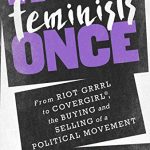
Review by feminist Adele of Andi Zeisler’s book, We Were Feminists Once: from Riot Grrrl to Covergirl®, the Buying and Selling of a Political Movement, exploring how a once revolutionary feminism is being taken over by “marketplace feminism.”
In 1995 Andi Zeisler
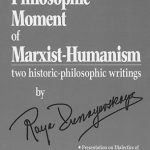
Eugene Gogol explores the point that the radical heart of Hegelian dialectics is the negation of the negation–the positive within the negative that constructs the new society. He traces this idea in Marx and Lenin and then how Raya Dunayevskaya saw this dialectic expressed in her breakthrough on Hegel’s Absolutes, where she ascertained a dual movement: a movement from practice that is itself a form of theory and the movement from theory to philosophy.
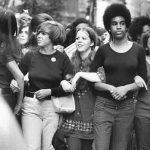
Olga Domanski delves into G.W.F. Hegel’s section on “Life” in his Science of Logic to show its meaning for the women’s movement today, facing lethal attacks on abortion rights and an alarming increase in rapes, battering, poverty and unemployment as well as an ever-widening gap between feminist theory and the lives of Black and working women.

A Review of “Headscarves and Hymens: Why the Middle East Needs a Sexual Revolution” by Mona Eltahawy, reviewed by Adele an expert on the theocratic Right.

Review of Review: Out In The Union: A Labor History of Queer America, by feminist anti-religious right activist Adele who writes an appreciative look at Miriam Frank’s important book.

A review by Adele of “Feminism Unfinished: A Short, Surprising History of American Women’s Movements,” by Dorothy Sue Cobble, Linda Gordon, and Astrid Henry (W.W. Norton & Company, Inc.: New York, 2014). This book is a brief overview of the history of the feminist movement in the U.S. from the period after women’s right to vote was won in 1920 until the present.
An appreciative and critical look at the Zapatistas’ seminar held in Chiapas, Mexico, May 3-9 on “Critical Thought in Face of the Hydra of Capitalism,” by a participant.
The Zapatistas are not just creating a new world in practice, but in theory—as we have seen by the radical concept Compa/Work Day (CWD), which opens new possibilities to emancipatory social movements. Or, better to say: They can develop revolutionary theory because they develop simultaneously a revolutionary practice (and vice versa).
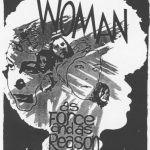
The article excerpts a summary of a talk by Dunayevskaya to a conference on Women’s Liberation in Detroit. The purpose of the meeting was to help Dunayevskaya work out the final chapter of her book then in progress, Philosophy and Revolution. That last chapter would take up the “New Passions and New Forces” for the reconstruction of society. The Conference was also the beginning of the News & Letters—Women’s Liberation Committee.
In Hegel we witness subjectivity coming out of objectivity, and the opposite movement. Dunayevskaya’s May 20, 1953, Letter interprets the Hegelian dialectic in a revolutionary way. What philosophical-political conclusions can be made?
Unlike vanguard parties, our goal is not the incorporation of a cadre into a certain fixed structure that Lenin advocated for in 1902 and rejected in 1905, but the development of “organic intellectuals,” thinkers and philosophers from the ranks of the Black masses as vanguard, women, youth, and workers.
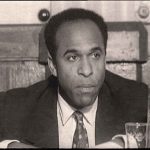
As a Black man, I asked myself: Why—through the dialectical crises of the social relations of production and the subsequent implosion of multiple outlived modes of production—has racism persisted? Why, despite the relations of property literally bursting asunder, does racism survive? How and why does racism, sexism, homophobia survive revolution after revolution? Will we again be left behind after the next revolution?

As we celebrate 60 years of publishing News & Letters, a look back at the Women’s Liberation Movement encountering Marxist-Humanism and how the women’s movement was anticipated as well as documented in its pages. It is an ongoing perspective.
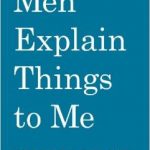
“Men Explain Things to Me” by Rebecca Solnit is a book of seven essays that eloquently describe how patriarchy attempts to distract us from the fact that seemingly isolated incidents and seemingly separate oppressions are part of a system of profound and devastating violence.

Protests erupted after the cops who murdered Michael Brown and Eric Garner were let off. They mark a new moment of rebellion against a social order in which Black youth are made to live continuously suspended over an abyss of non-existence.
The passion to tear up this deeply racist society by the roots calls for the fullest development in activity and thought.

The confrontation between differing classes and worldviews has been most intense in Syria, making it the test of world politics—and of philosophy and revolution. The Syrian Revolution has pushed thought about revolution to a new level.